Farafenni
 My Peace Corps assignment is in Farafenni, a city of about 40,000 people. It is just south of the border with Senegal, on the Trans-Gambia Highway in the North Bank Division. The Gambia, is entirely surrounded by Senegal, except for its coastline at the western end. The country straddles the Gambia River, which flows through the center of the country, and empties into the Atlantic Ocean. It is a former British colony, forming an enclave within Senegal, a former French colony. It is one of the most densely populated countries in West Africa, with a population of about 2 million. It is the smallest country in mainland Africa, located where dry and humid climate zones meet.
My Peace Corps assignment is in Farafenni, a city of about 40,000 people. It is just south of the border with Senegal, on the Trans-Gambia Highway in the North Bank Division. The Gambia, is entirely surrounded by Senegal, except for its coastline at the western end. The country straddles the Gambia River, which flows through the center of the country, and empties into the Atlantic Ocean. It is a former British colony, forming an enclave within Senegal, a former French colony. It is one of the most densely populated countries in West Africa, with a population of about 2 million. It is the smallest country in mainland Africa, located where dry and humid climate zones meet.
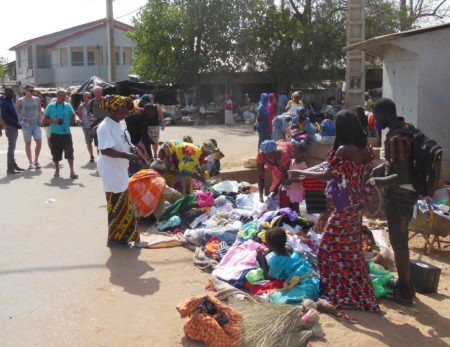
The Gambia’s economy is dominated by farming, fishing, and European tourism. Two-thirds of the population is engaged in raising livestock or growing crops, such as rice, maize, millet, sorghum, and cassava. Small-scale manufacturing includes processing peanuts, fish, and hides. The country lies within the Sudanian climatic region, with a distinct short rainy season and a long dry season. Tourists enjoy comfortable ocean front resorts, beautiful beaches, with warm water, and nature retreats, at a very low cost. It is also well known for bird watching, with over 500 species of birds. Birds of both the dry and humid climate zones occur in The Gambia, as well as migrating species to or through West Africa.
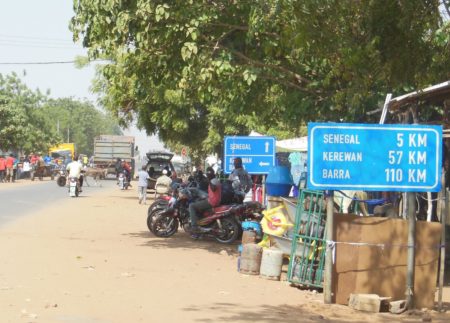
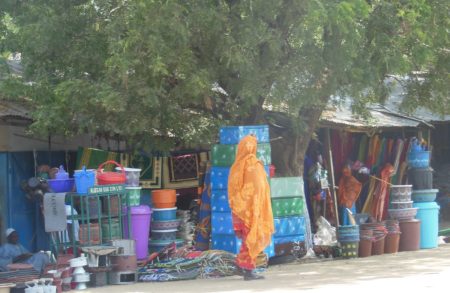
The Trans-Gambia Highway & North Bank Roads are paved, but all the other roads are dirt. My home compound about 1/2 mile from the main shopping area. I will describe my home and host family in a future post.
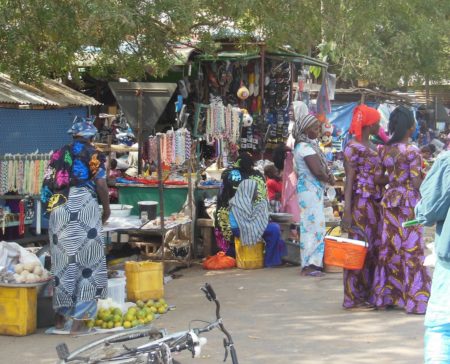
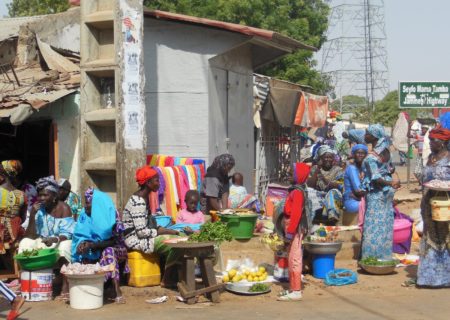
The market stalls and many shops make it very convenient to purchase my supplies and daily produce. There is even a small western style supermarket with frozen foods, dairy products, imported foods, toiletries, and even a soft serve ice cream machine.
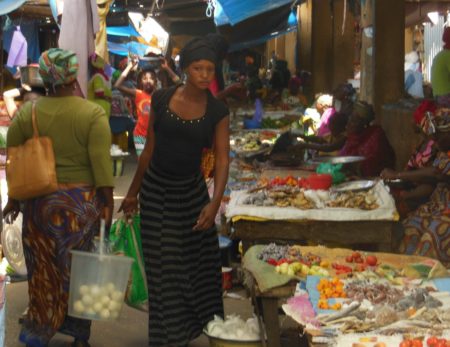
The prices are set in the supermarket, but everywhere else, bartering is customary. I’m learning how to barter for all items except food. The food is so reasonable, and the people work very hard to produce what they sell. I don’t feel comfortable paying less than the asking price.
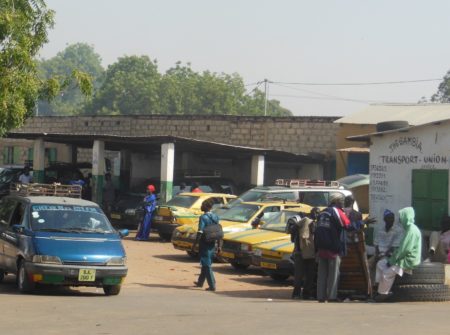
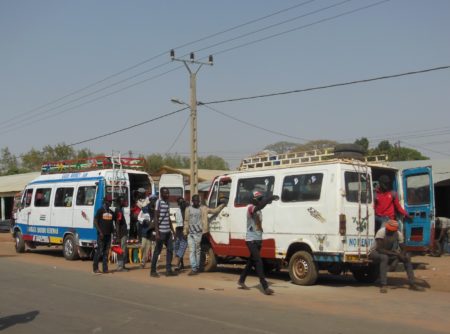
There are many Mosques, some Christian churches, and lots of schools, both government and private, called Lower Basic (elementary) and Upper Basic (secondary). There is a recently renovated hospital, fire and ambulance service, banks, military barracks, police, immigration and customs departments. There is good cell service and WiFi networks, many carpentry and metal workshops, vehicle repair shops, tailors, and other services. The open air market stalls, family food stands, and small stores (bitikoos) sell most everything you need. Farafenni is a transportation hub, with a bus station, and several car-parks where you can hire a taxi, or travel in a mini van called a Jele-Jele.
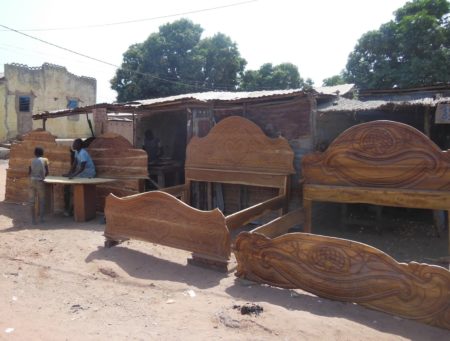
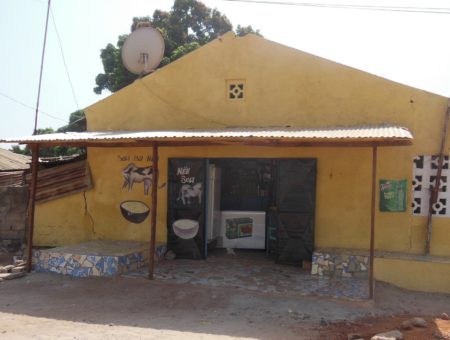
My work site is at the Anglican Mission Institute (AMI), or locally known as Agriculture Technical College (ATC), about a mile from my home. It is a private school, although all schools in The Gambia are free. Some books need to be purchased, and all students wear uniforms, so these expenses can make it difficult for the poorest families to send their children to school. I will talk more about my work site in a future post.
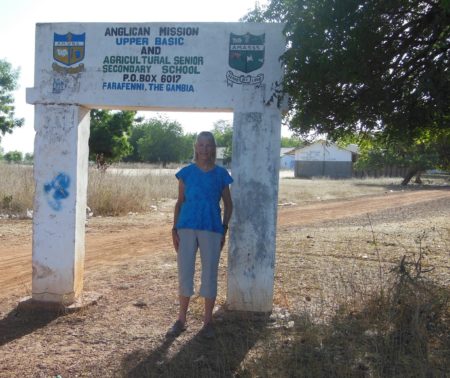
Living in Farafenni is vastly different from the small training village where I stayed during my first two months. There both disadvantages and advantages.
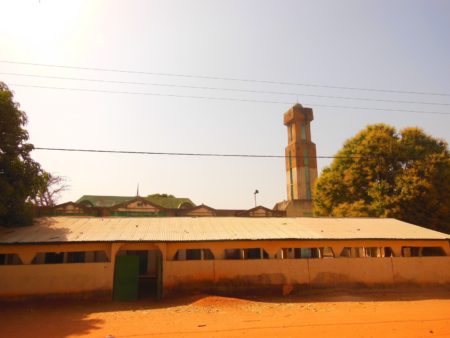
DISADVANTAGES: (1) It is noisy. The many mosques broadcast the call to prayer over loud speakers, five times a day. Every mosque has it’s own broadcast schedule, making each call to prayer last over an hour, beginning at 5:30 am for the first call and ending around 9pm for the last call. Music is also broadcast over load speakers, from cars, boom boxes, or the radio station, sometimes lasting until a couple of hours before morning prayers begin. (2) I get called Tubob all the time, which means white person or tourist. Although, it’s not meant as a derogatory term, it’s very annoying. I am learning to ignore the kids constantly yelling at me – “TUBOB – HOW ARE YOU!” (3) Security is more of a challenge in a city, and I have to be ultra aware of my surroundings. (4) Light pollution, and less opportunity to view the night sky, because I eat my dinner indoors. My backyard is very small, but I can still follow the moon cycle and view the incredible array of stars.
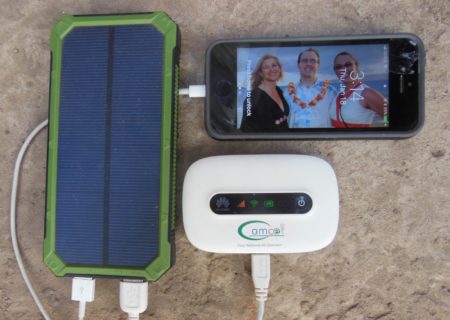
ADVANTAGES: (1) My host mom is a great cook, serving me lots of grilled fish, lightly cooked vegetables, with delicious sauces that use very little oil. (2) I get to make my own breakfast and dinner, and have access to a wide variety of fruits, vegetables, and dairy products. It’s a real treat to have yogurt for breakfast, and fresh green salads for dinner. (3) The stores, vendors, and support services are just a short walk or bike ride away. (4) I live in a secure compound, with a wonderful host family, and a spacious easy to clean home. (5) I have electricity, so I can keep the iPod charged, and listen to my own music, when I get tired of what’s blaring over the loud speakers. (6) WiFi 24/7, the internet service is better here than what I had in Oregon. The router is small enough to carry with me, and that saves me money on the iPhone’s data plan. (7) I can speak English almost everywhere, which makes becoming proficient in Mandinka more difficult, but life much easier.
All in all, the advantages definitely out weigh the disadvantages. I should be happy and comfortable here in Farafenni for the next two years.
9 thoughts on “Farafenni”
You are amazing Susan. I enjoy following your journey
Marlene
I hope it doesn’t take 2 years to get used to the noise! At least you have the benefit of good internet service. The internet service in Dallas seems slower every day. Thanks for the slice of Gambian life. It’s all so interesting.
I like the picture of the markets. Thanks for explaining why the Gambia is where it is. Changes in 20 years- the whole world now have internet. In Lesotho I got phone service up on a hill maybe. I’m currently reading Thomas Friedman’s book Thank you for being late. He writes about Globalization and expanding technology. Your access to it is a prime example.
Lots of Southern Humboldt folks have Senegalese friends as a result of Reggae on the River.. One of my closest friends visits Dacca often and is fluent in the language called Wolof.. Fabulous musicians and dancers..
Wolof is also spoken in Farafenni, so if he wants to visit while I am here, he is welcome – what is his name?
Susan, I love hearing about all of your new life experiences! Bethany and I had a hard time adjusting to ‘town noise’ when we left the farm. After 4 years, I don’t even notice anymore. Take care! ❤️
Even if I’m never able to tune out all the noise, it’s a small price to pay for this amazing adventure.
Your attitude is great. I see you will be able to overcome any of those benign annoyances and enjoy what is offered. You are such an inspiration. Can’t wait to read more
So enjoying your blog and am inspired by what u r doing. Love the pants and your house remodel
Comments are closed.